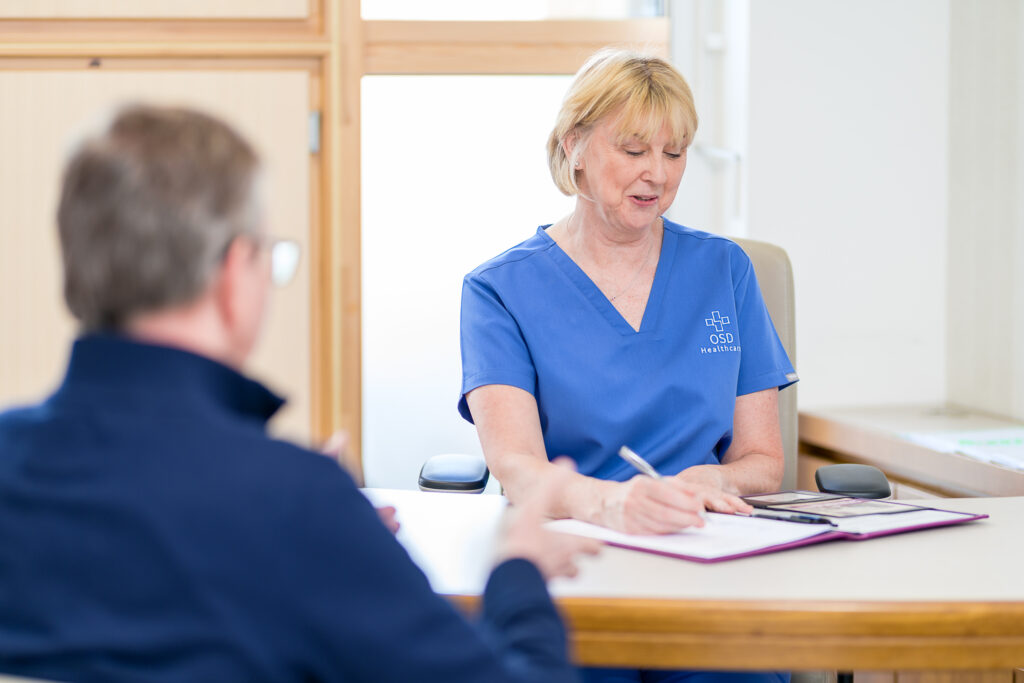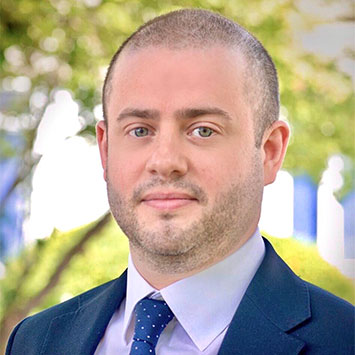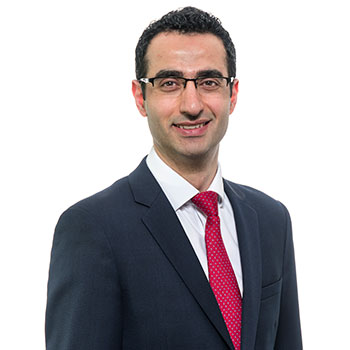What is a sigmoidoscopy?
A sigmoidoscopy is a procedure that examines the rectum and the section of the colon nearest to it, known as the sigmoid colon. Unlike a colonoscopy, which inspects the entire colon, a sigmoidoscopy focuses on the lower colon.
This procedure allows doctors to identify:
- Colorectal cancer, also referred to as colon cancer
- Rectal cancer
- Bowel issues
- Polyps (a sigmoidoscopy is an effective method for removal)
- Other colorectal health conditions
Sigmoidoscopy involves using a tube equipped with a light and camera at the end. During this procedure, the doctor may take biopsies (small tissue samples) to determine the condition affecting you.
Before your appointment, the expert will go over your options with you. Together, you will decide whether you need a flexible sigmoidoscopy.
Why might you need a sigmoidoscopy?
A sigmoidoscopy is conducted to identify and diagnose various conditions affecting the lower large intestine, such as polyps, inflammation, ulcers, and cancer. It plays a vital role in colorectal cancer screening, which targets the colon and rectum. Detecting colorectal cancer early through a sigmoidoscopy can greatly enhance treatment success.
Hospital fee guide price: £1,330*
More about pricingBefore treatment
Before deciding if a sigmoidoscopy is suitable for you, it’s essential to schedule an appointment with your doctor. This initial consultation will allow them to evaluate your symptoms, review your medical history, and address any concerns you may have.
If you are experiencing symptoms such as:
- Rectal bleeding
- Abdominal pain
- Constipation
- Diarrhoea
- Rectal pain
- Stool incontinence
A sigmoidoscopy might be an effective method to investigate these issues and identify the underlying cause.
Preparing for a sigmoidoscopy procedure
To prepare for the sigmoidoscopy, you will receive specific instructions to follow before the procedure, such as:
- Five days prior, you will be advised to stop taking certain supplements, such as iron or charcoal tablets
- Two days before, you should begin a low-fibre diet
- 12 hours before, you must refrain from eating or drinking, even if you are on a typical ‘normal diet’
- Two hours before the appointment, stop drinking
- Upon arrival at the hospital for your appointment, you will be shown to your room to change. Remember to bring any prescription medications with you. Your doctor will confirm that you are ready to proceed with the procedure
- Just prior to the procedure an enema (small amount of liquid) will be administered through the anus by a trained nurse to help empty the end portion of the bowel to allow visualisation during the procedure
During treatment
This procedure typically begins with you lying on your left side on the exam table. A specially trained doctor, known as an endoscopist, performs the procedure to ensure both safety and precision. They will gently insert the tube into your rectum using a medical-grade lubricant. This tube is equipped with a light and camera at the end, which displays images on a screen, allowing the technician to view the inside of your large intestine, bowel wall, bowel lining, and colon and rectum.
If colon polyps are detected, those can be removed during this safe procedure, this procedure is painless. In cases where colorectal cancer (colon cancer) is suspected, a follow-up appointment will be scheduled.
After treatment
A sigmoidoscopy is completed within the same day; however, test results may not be available immediately, especially if the team needs to analyse a tissue sample or if abnormal tissue was removed.
After the procedure, some individuals might experience side effects, such as slight bleeding. While this isn’t common, it’s important to consult the medical team if you have concerns. Possible side effects include:
- Mild cramping or pain
- Bloating
- Increased gas
Most individuals can resume their regular diet right after the procedure.
It’s crucial to contact the hospital if, within 48 hours, you experience:
- Abdominal pain
- Bloody bowel movements, rectal bleeding, or blood clots (more than just small amounts of ‘spotting’)
- Elevated temperature (fever)
- General feelings of being unwell
Risks and complications
Although sigmoidoscopy is a safe procedure, there are potential risks and complications to be aware of. These include bleeding, bowel perforation, and infection. Bleeding is the most frequent complication and generally occurs when a polyp is removed, or a biopsy is performed. Bowel perforation is a very rare complication that might happen if the sigmoidoscope inadvertently damages the bowel wall, occurring less than 1 in 2500 cases. Infection is also an very uncommon risk that can arise when bacteria enter the bowel via the sigmoidoscope. It is crucial to discuss these risks with your doctor prior to the procedure to ensure you are fully informed.
Appointment and Treatment Plan
Appointment
Based on your previous consultation with a doctor, an appointment will be arranged between you and your expert.
Consultation
During this appointment, you’ll go through your medical history, your symptoms, and together, you’ll decide whether further investigation, such as sigmoidoscopy is the best next step.
Preparation
If sigmoidoscopy is an option, then the specialist will provide you with instructions on how to best prepare for your procedure.
Procedure
Prior to going through the sigmoidoscopy, our team will ensure that you’re prepped once again. If everything is confirmed, you’ll undergo the procedure and then we’ll explain the aftercare instructions.
Aftercare
If necessary, you’ll stay in a ward for a while to ensure that you’re ready to go home after the procedure.
Follow-Up
You’ll come in to meet your doctor, discuss your results and agree on further steps.
Experts
We are proud to provide patients with access to a wide range of clinicians, chosen specifically for their knowledge and reputation in their area of expertise. Our experts align with our values: putting you at the centre of your care and educating you on your options at each step of the journey. We encourage you to learn more about our clinicians and how they can help you below. As always, please contact our patient services team if you require any additional information.
We offer 3 ways to pay for your treatment
We exist to take the stress out of private healthcare.
Our payment options are designed to offer you easy access to our treatments and services. You can choose to pay on the day, spread the cost, or use your private medical insurance.
Our patient services team will guide you through the process, providing clear costs and support throughout your course of treatment so you can focus on the thing that matters most – your health.
Whether you pay in advance, spread the cost, or use your private medical insurance, rest assured you will be receiving exceptional care 365 days a year.
Pay in Advance
Even if you do not have medical insurance, you can still get quick and comprehensive access to private medical care.
We provide transparent pricing from your initial consultation to the completion of your treatment so you know where your stand, every step of the way.
We accept all major debit and credit cards, as well as Apple Pay for UK residents. Please note that we do not accept cash or cheques.
Pay monthly
Paying for your treatment at OSD Healthcare doesn’t need to mean settling the full cost in one go.
Many of our treatments have a pay monthly option that allows you to spread the cost of your treatment over 12 months with no credit checks required.
A minimum spend of £300 does apply. We’ll take your first payment upfront and then arrange a direct debit for your monthly payments thereafter. It’s that simple.
Pay using PMI
We are recognised by all major health insurance companies and with our extensive range of services, there are lots of benefits to using your insurance with us. Our patient services team is here to answer any questions you may have about using your private health insurance with us.
Please bring along your policy details including your scheme details, membership or policy number, expiry date and confirmation of eligibility to claim (i.e. your authorisation number). If you do not have these details with you, we will require payment from you on the day. Patients are liable for any amounts not settled by their insurer.
Pricing
Hospital fee guide price: £1,330
Procedure price subject to bespoke quotation.
Additional consultant fee not included.
Medically reviewed by Dr Mani Naghibi - Gastroenterology and Human Nutrition Consultant on 21/12/2024










